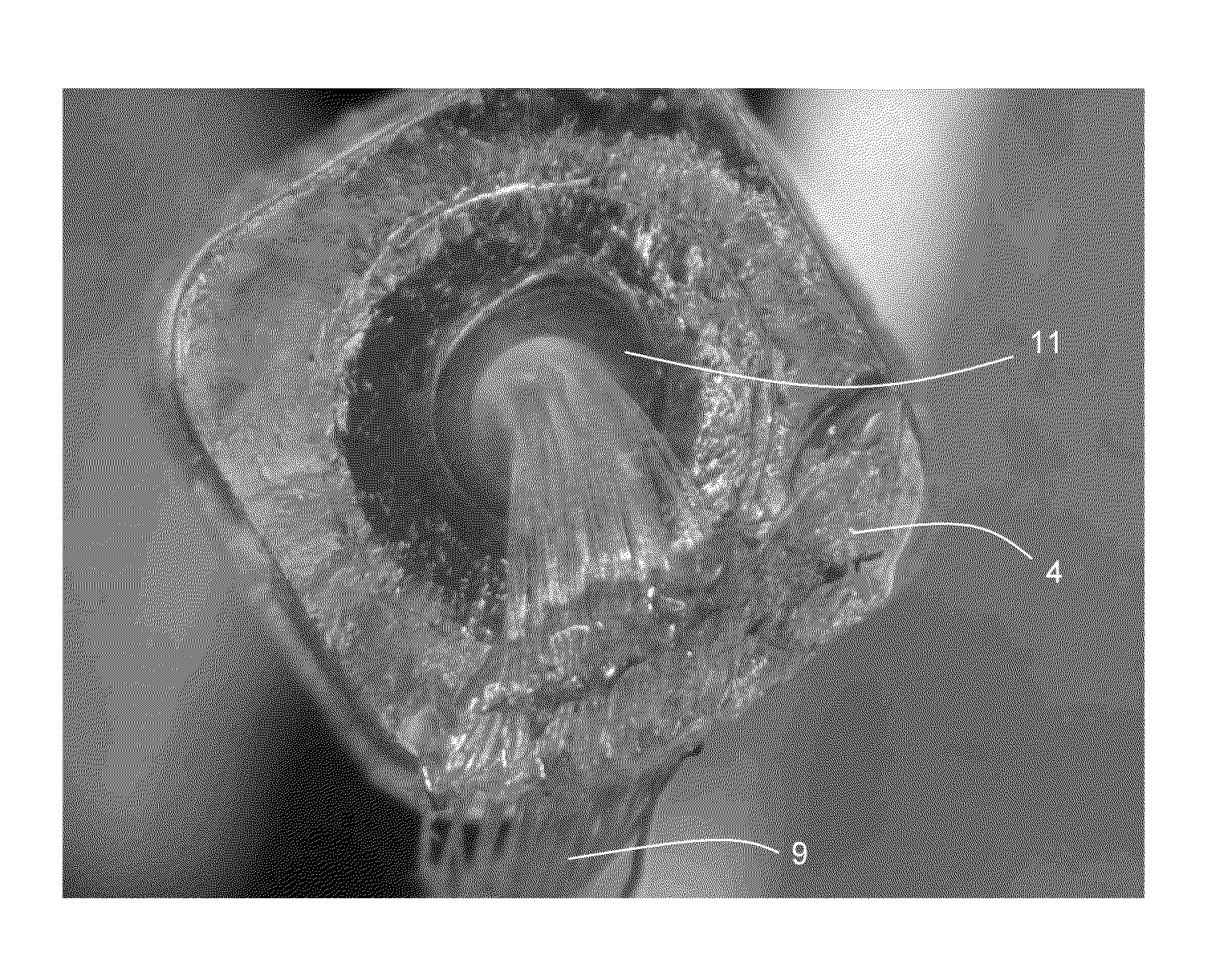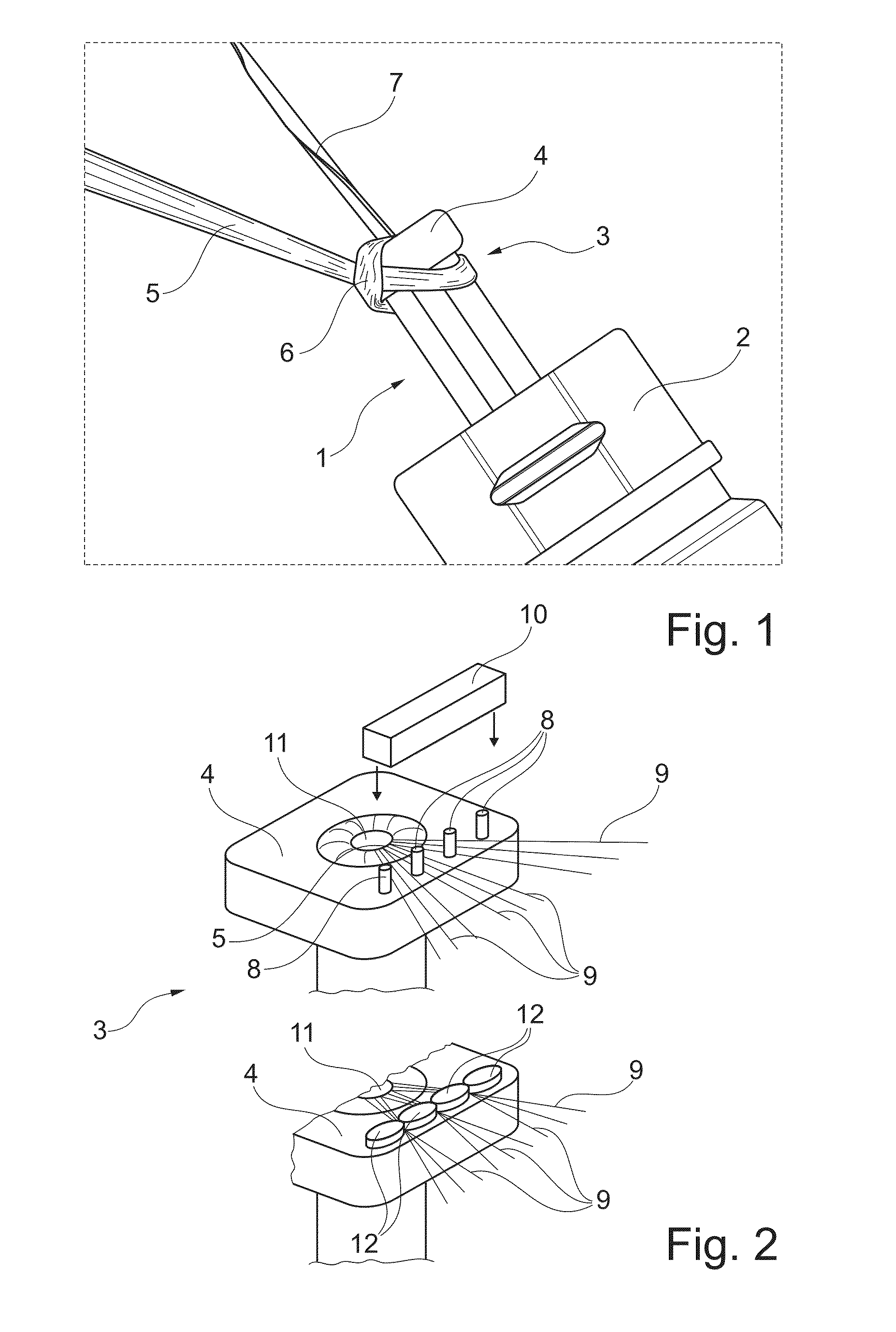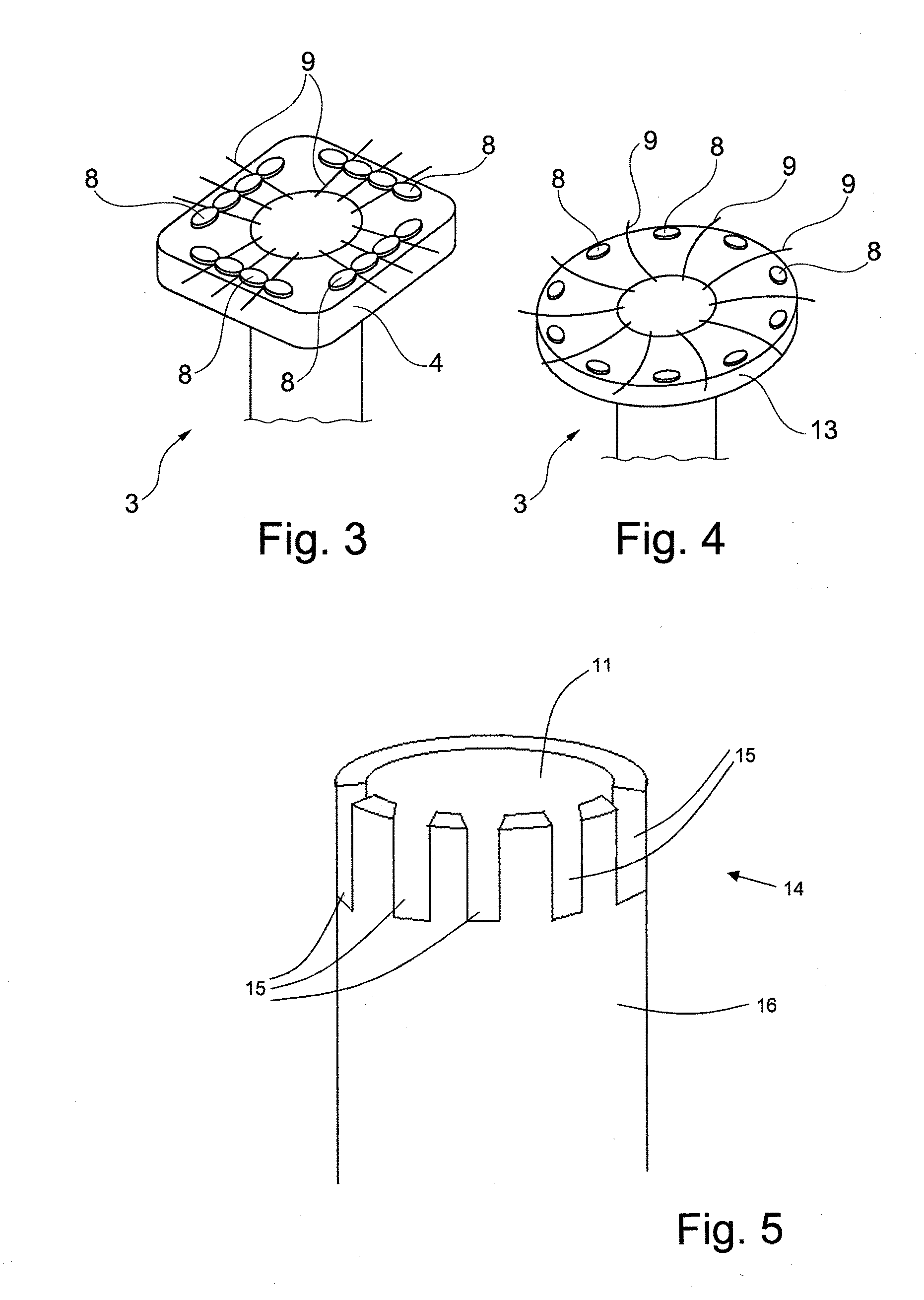Method for producing a tube for a hearing aid
a tube and hearing aid technology, applied in the direction of hearing aid housing, hearing aid mounting/interconnection, hearing aids behind the ear, etc., can solve the problems of reduced tubing strength, wire stress or tension, and insufficient robustness. , to achieve the effect of improving tensile strength and limited tube stretchability
- Summary
- Abstract
- Description
- Claims
- Application Information
AI Technical Summary
Benefits of technology
Problems solved by technology
Method used
Image
Examples
Embodiment Construction
[0042]FIG. 1 shows a hollow RIC tube 1 positioned in a holder 2, the tube 1 having a tube end 3 provided with a flange 4. A fiber 5 inserted in the tube 1 extends out of the tube 1 and is formed in a loop around the tube end 3 such that a knot 6 to the tube end 3. Electrical wires 7 extend out of the tube 1. The tube end 3 with fiber 5 tied around it is now ready to be fixated to the outside of the tube 1 by heating. Other means of fixation may be performed by gluing and / or welding. By placement of the fiber end 5 around the outside tube end 3 and securing the fiber end 5 to the outside tube end 3, the fiber 5 is anchored to the tube 1 in such a way that the anchoring does not consume space in the passage of the tube. Accordingly, the anchoring does not take up space which is needed for the electrical wires. As a result, the tube may be relatively thin which is desirable from an aesthetic point of view.
[0043]FIG. 2 shows the tube end 3 having a square shaped flange 4 that is provide...
PUM
| Property | Measurement | Unit |
|---|---|---|
| Length | aaaaa | aaaaa |
Abstract
Description
Claims
Application Information
 Login to View More
Login to View More - R&D
- Intellectual Property
- Life Sciences
- Materials
- Tech Scout
- Unparalleled Data Quality
- Higher Quality Content
- 60% Fewer Hallucinations
Browse by: Latest US Patents, China's latest patents, Technical Efficacy Thesaurus, Application Domain, Technology Topic, Popular Technical Reports.
© 2025 PatSnap. All rights reserved.Legal|Privacy policy|Modern Slavery Act Transparency Statement|Sitemap|About US| Contact US: help@patsnap.com



